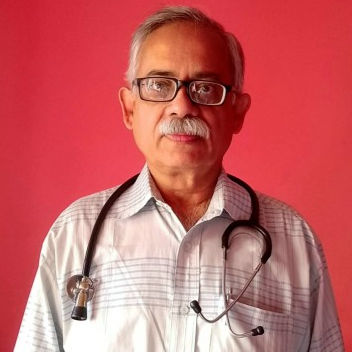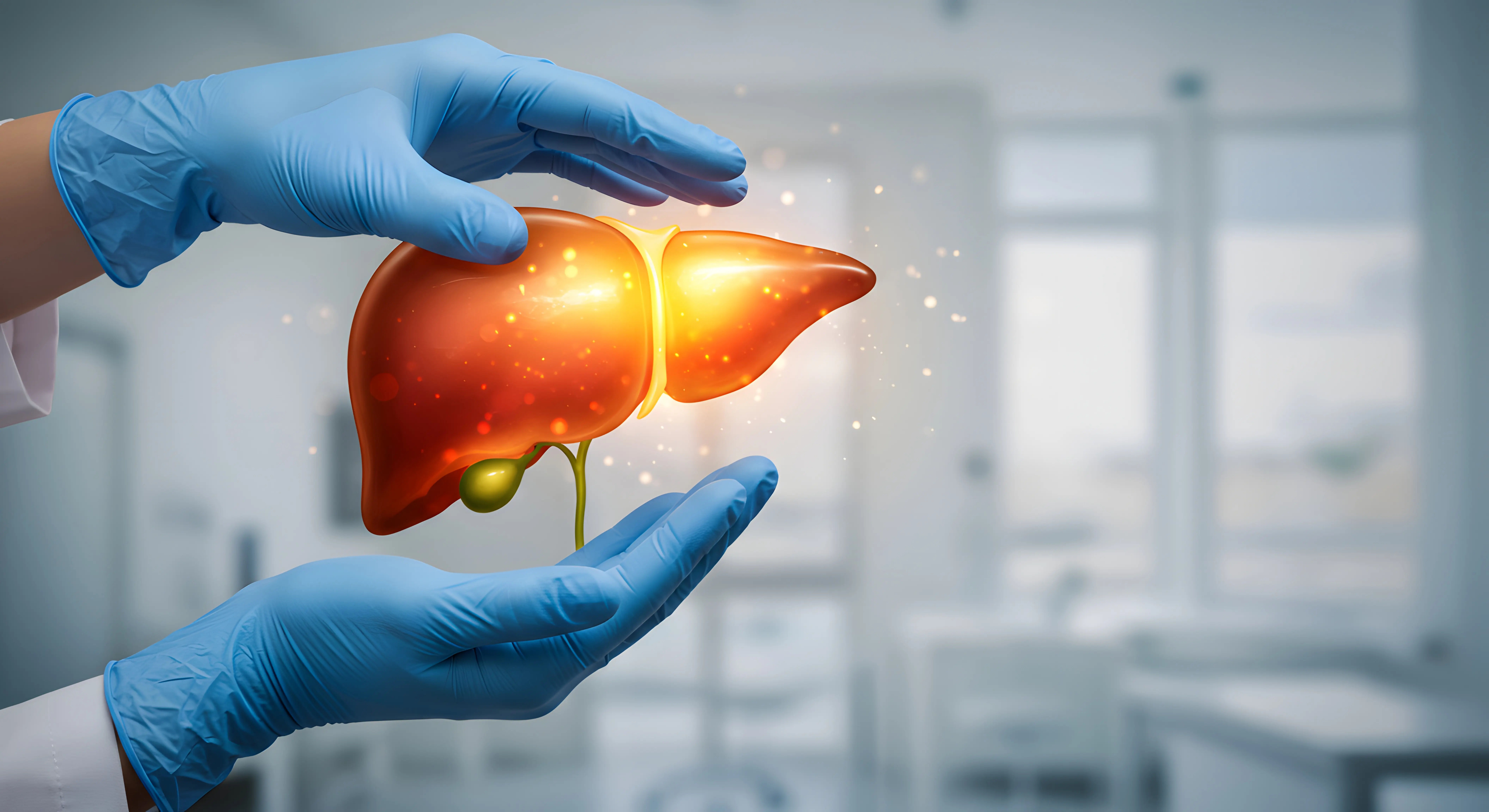Should You Work Out or Rest When You’re Tired Expert Advice
Too tired to move? Learn when to do a light workout, when tired and when to choose rest vs exercise, with evidence-based tips from trusted health sources.

Written by Dr. Md Yusuf Shareef
Reviewed by Dr. D Bhanu Prakash MBBS, AFIH, Advanced certificate in critical care medicine, Fellowship in critical care medicine
Last updated on 13th Jan, 2026

Introduction: Feeling Wiped Out — Push Through or Pause?
Most people have faced the familiar dilemma: you lace up your trainers, feel the wave of fatigue hit, and wonder, Should I still work out tired, or should I rest? Making the right call matters. Training when your body truly needs rest can increase injury risk, prolong illness, and stall progress. But sometimes you’re just mentally drained — and gentle movement can actually lift your energy. This guide helps you recognise the type of tiredness you’re dealing with and choose rest or exercise in a way that protects your health and supports long-term fitness.
Should You Work Out Tired? A Quick Answer
Here is an explanation for this:
Choose rest if:
● You have a fever, chest congestion, vomiting, diarrhoea, or a worsening cough
● You feel dizzy, faint, short of breath, or have chest pain
● You are severely sleep-deprived and feel unsafe to train
● You have sharp or worsening pain suggesting injury
● You notice multiple signs of overtraining, such as exhaustion or irritability
Consider gentle movement if:
● You are mentally tired but physically fine
● You have mild above-the-neck cold symptoms without fever
● You are mildly sore from a previous workout
Proceed with your planned session if:
● You have no red-flag symptoms
● You feel better after warming up
● You can adjust intensity or duration based on how your body responds
Consult a Top General Practitioner for Personalised Advice
How to Tell What Kind of Tired You Are?
Identify the type of tired you are, and proceed with the following ways:
Sleepy or Short on Sleep
Sleep loss affects coordination, decision-making, and exercise performance. Adults generally need 7+ hours of sleep for recovery and energy.
● If you’re foggy, clumsy, or struggling to stay awake, skip high-intensity sessions
● Try walking, stretching, or resting if you feel unsafe
● If you slept moderately well but feel flat, a shorter, gentle workout may boost alertness
Sick or Getting Sick
The “neck check” is a common guideline for safe exercise.
● Above-the-neck symptoms like a runny nose or mild sore throat may allow light activity
● Below-the-neck symptoms such as fever, chest congestion, or body aches call for rest
● If movement worsens how you feel, stop immediately
Sore vs Hurt
● Normal soreness (DOMS) feels stiff and tender but improves with light movement
● Sharp, localised, or worsening pain suggests injury and requires rest
● If soreness limits mobility, choose gentle mobility or an easy walk
Mentally Stressed but Physically Fine
● Light to moderate exercise may improve mood, reduce tension, and increase energy
● Long, intense workouts when stressed may feel draining — keep it simple and short
Rest vs Exercise: An Easy Decision Guide
Here is a decision guide if you need rest or exercise:
Red Light (Rest Today)
● Fever or below-the-neck illness
● Dizziness, faintness, chest pain, or difficulty breathing
● Sharp or sudden pain
● Extreme sleep loss and safety concerns
Yellow Light (Modify Your Session)
● Mild cold symptoms without fever
● General soreness or stiffness
● Mental fatigue
● Poor sleep but adequate alertness
Green Light (Go Ahead, but Listen to Your Body)
● No red flags
● Energy improves during warm-up
● Willing to adjust intensity as needed
When a Gentle Workout Can Actually Help?
Certain types of movement can lift your energy, reduce muscle stiffness, and support recovery. Let us see what a gentle workout can do:
Light Cardio (10–20 Minutes)
● Walking
● Easy cycling
● Light swimming
Mobility and Stretching
● Helps ease tightness
● Restores range of motion
● Supports calm, relaxed breathing
Low-Impact Strength
● Bodyweight moves like wall push-ups and chair squats
● Resistance bands for light, joint-friendly work
● Light dumbbells at slow, controlled tempos
Tip: Use the 10-minute rule. Start your workout, and if after 10 minutes you feel worse, stop and rest. If you feel better, continue at a gentle pace.
How to Safely Modify a Workout When You’re Tired?
Various ways to safely modify a workout when you are tired include:
Lower Intensity
● Swap sprints for steady cycling or incline walking
● Avoid maximal lifts, explosive movements, or all-out intervals
Shorten Duration
● Reduce the workout by 25–50%
● Choose quality over quantity
Reduce Load or Impact
● Use lighter weights
● Opt for low-impact cardio
● Pick machines over free weights if you feel unsteady
Focus on Technique
● Slower reps
● Longer rest between sets
● Controlled breathing
Use RPE (Rate of Perceived Exertion)
Aim for RPE 4–6/10 on tired days, it includes:
Extend Warm-Up and Cool-Down
● A longer warm-up helps circulation and coordination
● A slower cool-down supports recovery and relaxation
Hydrate and Fuel
● Dehydration worsens fatigue
● A light snack before exercise may help if you haven’t eaten for several hours
Warning Signs to Stop Mid-Workout
Warning signs to stop the mid-workout include:
● Chest pain or pressure
● Sudden shortness of breath
● Dizziness or faintness
● Sharp, sudden, or worsening pain
● Heart palpitations
● Any symptom that feels unusual or unsafe
Recovery Basics That Make Workouts Feel Easier
Sleep
● Aim for a consistent 7+ hours
● Keep a regular sleep schedule
● Create a dark, cool environment
Balanced Training Plan
● Mix high-intensity days with easier sessions
● Schedule 1–2 recovery days per week
● Rotate muscle groups to reduce overuse
Balanced Exercise Routine
● Combine strength, cardio, and mobility
● Vary movement patterns for resilience
Nutrition
● Include lean protein, whole grains, fruits, vegetables, and healthy fats
● Add a small carb-and-protein snack before tough workouts if needed
Hydration
● Drink water consistently
● Use thirst and urine colour as cues (pale yellow is a common target)
Stress Management
● Short walks
● Breathwork
● Time outdoors
If You Routinely Work Out Tired, Look Deeper
Frequent fatigue is a sign to reassess your routine. Let us see the tips to identify it:
● Check your sleep habits — poor sleep accumulates quickly
● Evaluate your nutrition — low-calorie or low protein intake affects energy and recovery
● Review your training load — too much intensity without rest leads to burnout
● Monitor your stress levels — mental load affects physical performance
If exhaustion persists for several weeks or you notice declining performance, poor mood, or increased illness, consider a deload period and speak with a healthcare professional or qualified coach.
Special Situations
The special situations for work out or rest when tired include:
Beginners
● Start slowly
● Use short, low-intensity sessions
● Gradually increase duration and load
Older Adults or Those with Chronic Conditions
● Exercise is highly beneficial
● Tailor intensity to your physical capacity
● Check with your clinician for personalised progression
Returning After Illness
● Begin with very light movement
● Increase gradually over several days
● Stop if symptoms return or worsen
Conclusion
Knowing whether to train or rest on tired days is a skill that grows with self-awareness. Your body sends signals — from mild stiffness to strong red flags — that help you decide wisely. Pushing through the wrong type of fatigue can slow progress and risk injury, while gentle movement on lighter days can boost energy, mood, and consistency. By listening carefully, adjusting intensity, and protecting your recovery, you build a sustainable fitness routine that supports both performance and long-term health. When in doubt, choose the option that leaves you feeling stronger tomorrow, not worse.
Consult a Top General Practitioner for Personalised Advice
Consult a Top General Practitioner for Personalised Advice

Dr. Rajib Ghose
General Physician/ Internal Medicine Specialist
25 Years • MBBS
East Midnapore
VIVEKANANDA SEBA SADAN, East Midnapore

Dr. Ashita Kuruvilla
General Practitioner
7 Years • MBBS
Kolkata
KVC CLINIC, Kolkata

Dr. Rupam Chowdhury
Orthopaedician
10 Years • MBBS, DNB (Ortho.)
Kolkata
MCR SUPER SPECIALITY POLY CLINIC & PATHOLOGY, Kolkata

Dr. Debdatta Pati
Psychiatrist
18 Years • MBBS, DPM, MD (PSYCHIATRY)
Kolkata
MCR SUPER SPECIALITY POLY CLINIC & PATHOLOGY, Kolkata

Dr. Pinaki Mukhopadhyay
General Physician/ Internal Medicine Specialist
33 Years • MBBS
Kolkata
MCR SUPER SPECIALITY POLY CLINIC & PATHOLOGY, Kolkata
(25+ Patients)
Consult a Top General Practitioner for Personalised Advice

Dr. Rajib Ghose
General Physician/ Internal Medicine Specialist
25 Years • MBBS
East Midnapore
VIVEKANANDA SEBA SADAN, East Midnapore

Dr. Ashita Kuruvilla
General Practitioner
7 Years • MBBS
Kolkata
KVC CLINIC, Kolkata

Dr. Rupam Chowdhury
Orthopaedician
10 Years • MBBS, DNB (Ortho.)
Kolkata
MCR SUPER SPECIALITY POLY CLINIC & PATHOLOGY, Kolkata

Dr. Debdatta Pati
Psychiatrist
18 Years • MBBS, DPM, MD (PSYCHIATRY)
Kolkata
MCR SUPER SPECIALITY POLY CLINIC & PATHOLOGY, Kolkata

Dr. Pinaki Mukhopadhyay
General Physician/ Internal Medicine Specialist
33 Years • MBBS
Kolkata
MCR SUPER SPECIALITY POLY CLINIC & PATHOLOGY, Kolkata
(25+ Patients)
More articles from General Medical Consultation
Frequently Asked Questions
1) Is it okay to exercise on little sleep?
If you feel unsafe, unsteady, or extremely foggy, rest. Adults generally need at least 7 hours for proper recovery. A short, gentle session can still be fine if you feel reasonably alert — just keep it light.
2) Can exercise make me feel less tired?
Yes. Regular moderate exercise improves overall energy levels. On low-energy days, gentle movement like walking or yoga can lift mood and reduce fatigue.
3) Should I work out when I have a cold?
For above-the-neck symptoms without fever, light activity may be safe. For fever, chest congestion, body aches, or stomach symptoms, rest until fully recovered.
4) How many rest days do I need weekly?
Most people benefit from one to two rest or active recovery days each week. These support muscle repair, reduce injury risk, and maintain performance.
5) What are the signs I’m overtraining?
Persistent exhaustion, declining performance, chronic soreness, increased illnesses, poor sleep, irritability, or low motivation. If these last more than a couple of weeks, reduce your training load and seek professional guidance.




